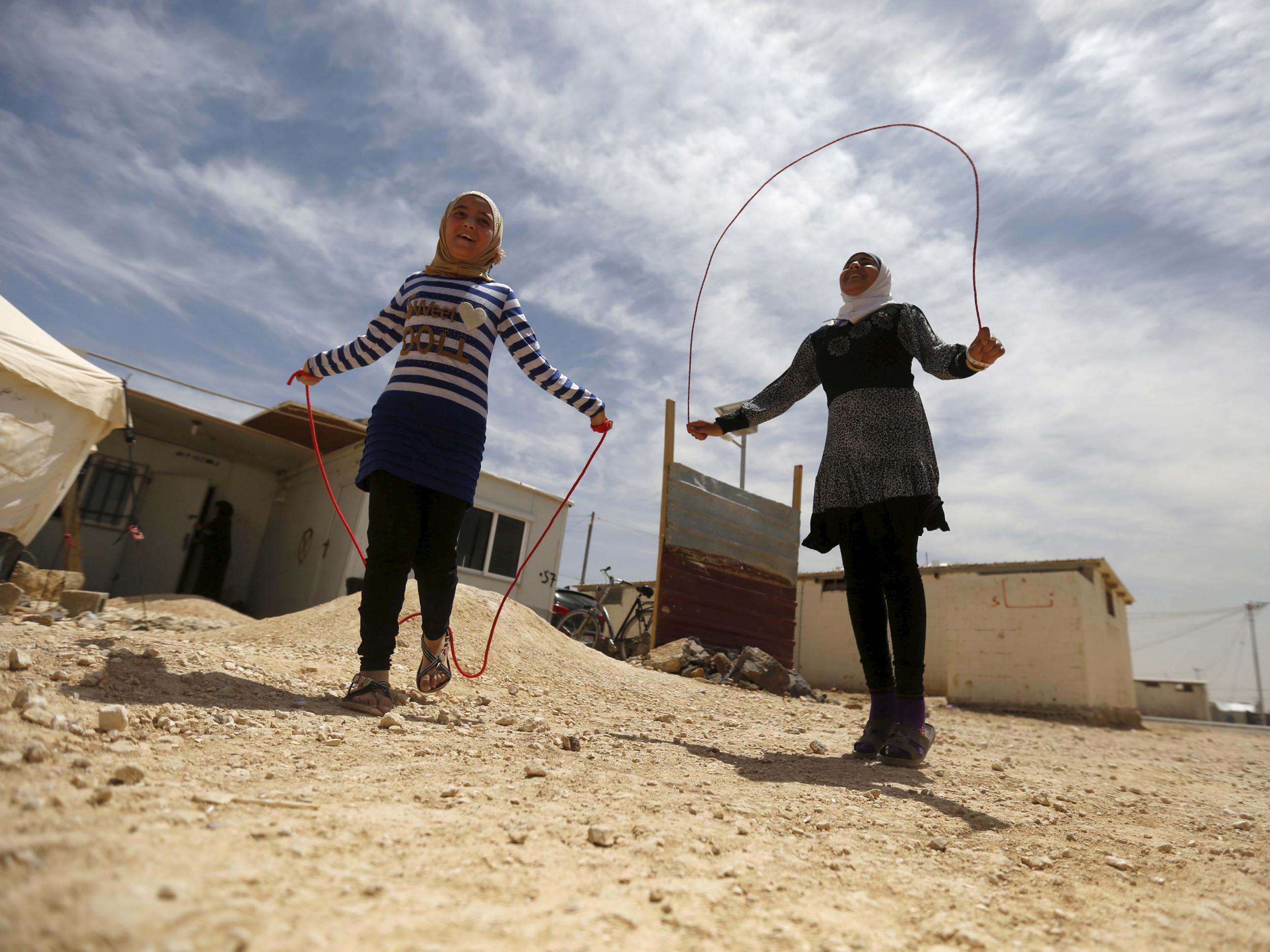Why The Independent is launching a campaign to promote understanding of life in war zones
By twinning British schools with those in refugee camps and areas affected by conflict, we hope young people on both sides will gain

Your support helps us to tell the story
From reproductive rights to climate change to Big Tech, The Independent is on the ground when the story is developing. Whether it's investigating the financials of Elon Musk's pro-Trump PAC or producing our latest documentary, 'The A Word', which shines a light on the American women fighting for reproductive rights, we know how important it is to parse out the facts from the messaging.
At such a critical moment in US history, we need reporters on the ground. Your donation allows us to keep sending journalists to speak to both sides of the story.
The Independent is trusted by Americans across the entire political spectrum. And unlike many other quality news outlets, we choose not to lock Americans out of our reporting and analysis with paywalls. We believe quality journalism should be available to everyone, paid for by those who can afford it.
Your support makes all the difference.It was time to go back to school for many children in the UK this week – although Scottish schools have been hard at work for two weeks already. A good time to think about how different life must be for children in refugee camps and conflict zones around the world.
That is why The Independent is launching a campaign called “Learn to Live” to encourage schools in the UK to twin with schools in parts of the world affected by war, in the belief that both sides could learn a great deal from each other.
Many schools already have contacts or exchange programmes with schools in other countries, often linked with learning French or German. These are valuable initiatives, and The Independent is committed to the virtues of learning languages, in spite of the recent sharp decline in numbers taking modern foreign language GCSEs. But we hope to challenge schools to go further and to engage with pupils in more difficult circumstances, facing problems that are hard for most British people to imagine.
As we report on Thursday, the aid organisations trying to deliver education to young people in the vast refugee camps in the Jordanian desert near the Syrian border are doing heroic work. We hope that, by learning about how these millions of refugees live and about the causes of the conflicts that lead to such vast movements of people, the next generation of young British people can be even better informed and even more internationally minded than the ones that went before.
And with the support of an informed public here, organisations such as War Child, the charity set up to protect the rights of children caught up in war, can help young people in Jordan and elsewhere fulfil their potential.
Our report from the Zaatari refugee camp in northern Jordan finds pupils who want to be human rights lawyers, doctors, teachers and mechanical engineers. They are part of our future too.
As a young and optimistic news organisation, The Independent firmly believes in the promise of progress and in the possibilities of technology. With instant video communication, students in Britain can engage with those in the Middle East, Africa or Bangladesh in ways that have hitherto not been possible.
If your school, or your children’s school, would like to get involved, The Independent and the Evening Standard are working with War Child to help make these connections. Teachers and pupils can look at the charity’s website for inspiration and lesson plans. We also encourage schools to sign up to Connecting Classrooms, a twinning programme run by the British Council with the Department for International Development.
We look forward to hearing about and learning from your stories.
Join our commenting forum
Join thought-provoking conversations, follow other Independent readers and see their replies
Comments